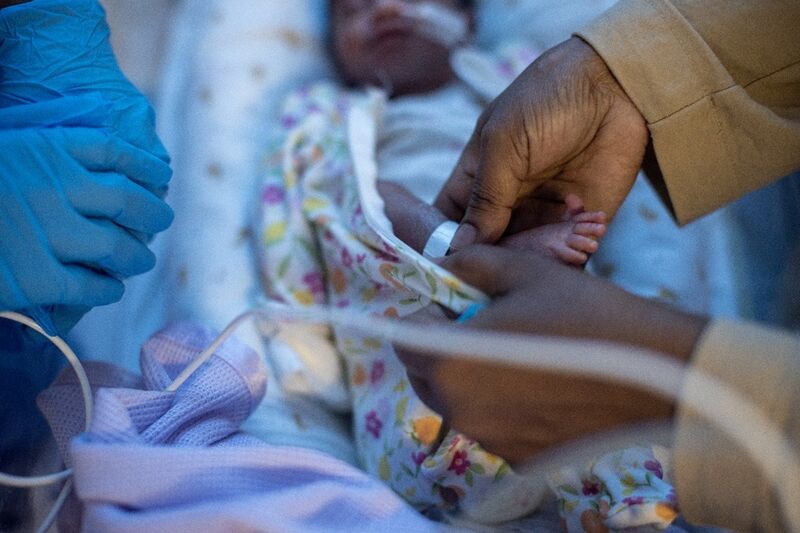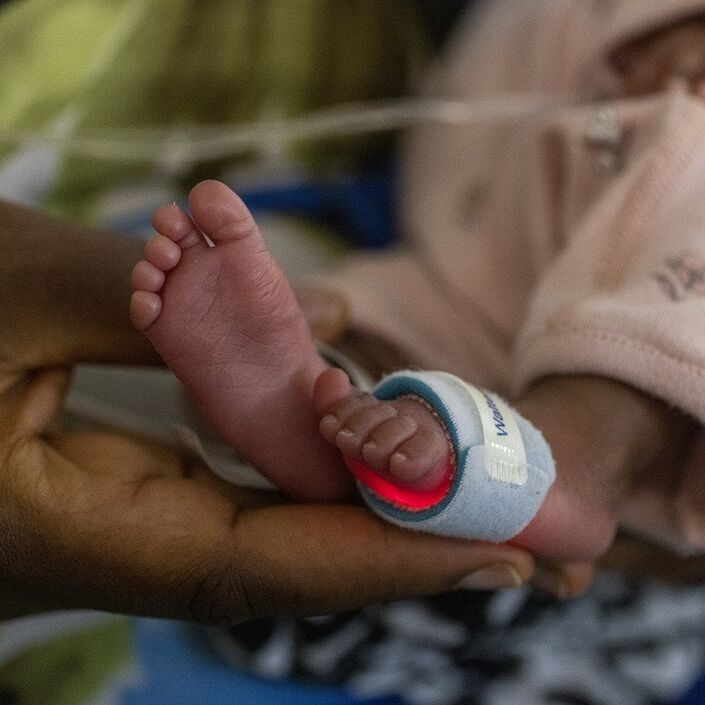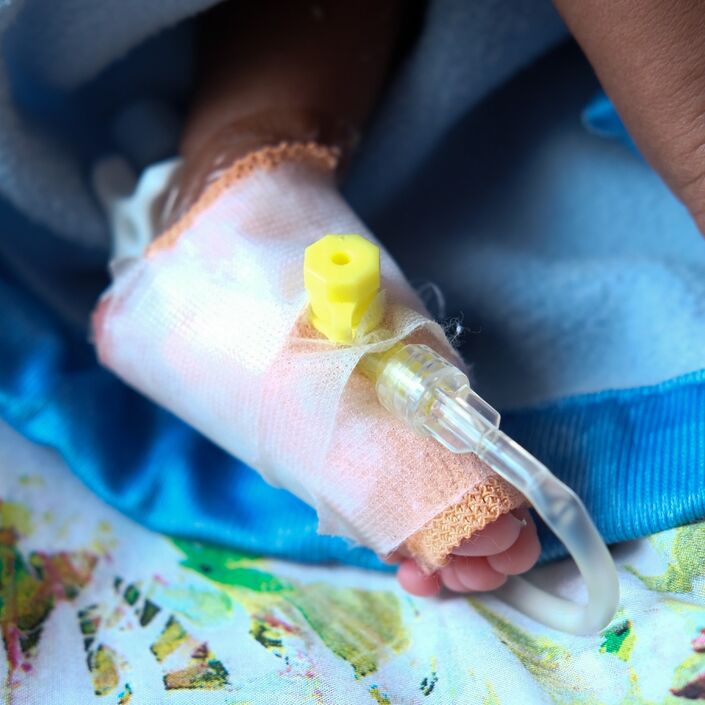Overall, the report shows that there remains striking geographic variation in both the provision of recommended care and the outcomes for babies born premature or sick. For the first time, this year’s report also highlights where there is variation in care linked to babies’ ethnicity. We welcome the inclusion of this data and would urge that socio-economic deprivation – another factor strongly associated with preterm birth and neonatal mortality – also be included going forward.
The findings show:
- Unacceptable geographic variation persists in neonatal mortality between different neonatal networks. The report concurs with other recent publications that it is very unlikely that the national ambition to halve the rate of neonatal deaths in England by 2025 will be met.
- Fewer Black babies (68.5%) receive deferred cord clamping (DCC) than White (74.1%) and Asian (75.5%) babies. This level of variation is concerning due to the significant impact DCC can have on improving survival and long-term outcomes in babies born very premature.
- A fifth of extremely premature babies continue to be born in a hospital without a NICU on site, with regional variation observed.
Taken together, the findings also highlight that parents of Black, Asian or Mixed-Race babies might not be as involved in their baby’s care compared to parents of White babies. The report shows:
- Black and Asian parents are less likely to have a parental consultation with a senior clinician within 24 hours of admission (93.7% and 94.2% respectively) compared to White parents (95%). While the difference may seem small, it is statistically significant.
- Fewer Black and Asian babies receive any of their mother’s milk at 2 days of life (62.2% and 65.5% respectively) compared to White babies (67.5%). This may suggest that early support to breastmilk feed is not being provided to Black and Asian women as comprehensively as it is to White women.
- Parental involvement in ward rounds took place for a lower proportion of days when the baby’s mother was Asian (29.3%) or Black (34.7%) than for White mothers (37.9%).
While these initial findings are limited in what they can tell us about what is driving this variation, they do suggest there are differences in parental experience and partnership in care, which warrant further investigation. The findings echo those of our own work at Bliss, that Black and Asian parents report differences in the support they receive on the neonatal unit compared to White families. For example:
30% of parents of South Asian heritage felt their needs for privacy and modesty were not understood or respected by staff.1
Parents Bliss spoke to who were of South Asian heritage and who did not speak English as a first language were more likely to report poor experiences.2
Work exploring Black families’ experiences have indicated that these are often affected by challenges such as:
- A lack of trust in healthcare services, often stemming from previous negative or racist interactions,
- A need to appear strong, or to mask true feelings, which can be exhausting,
- Deep feelings of isolation contributed to by challenging experiences of communication with healthcare teams.
Caroline Lee-Davey, Chief Executive of Bliss, said: “While we remain deeply concerned that such striking variation persists in the delivery of neonatal care, Bliss welcomes the inclusion of viewing these key metrics through the lens of ethnicity for the first time.
“It is well established that babies who are Black and Asian are at higher risk of being born premature, and are more likely to die in the neonatal period. This is unacceptable – but not enough is known about why this variation occurs. In particular, more data is needed to understand how care practices may differ on the neonatal unit, which may contribute to variation in outcomes. This report is a welcome first step in building a picture of how care is experienced.
“However, we know that it is not only ethnicity which is associated with variation in neonatal survival and morbidity. Higher levels of socio-economic deprivation are also associated with preterm birth, neonatal death and neonatal admission, and we know there are important intersections between ethnicity and deprivation which need exploring. We urge the NNAP to include data relating to social deprivation from next year, alongside ethnicity data.”
References:
1, 2, Bliss, South Asian families’ experiences of neonatal care


